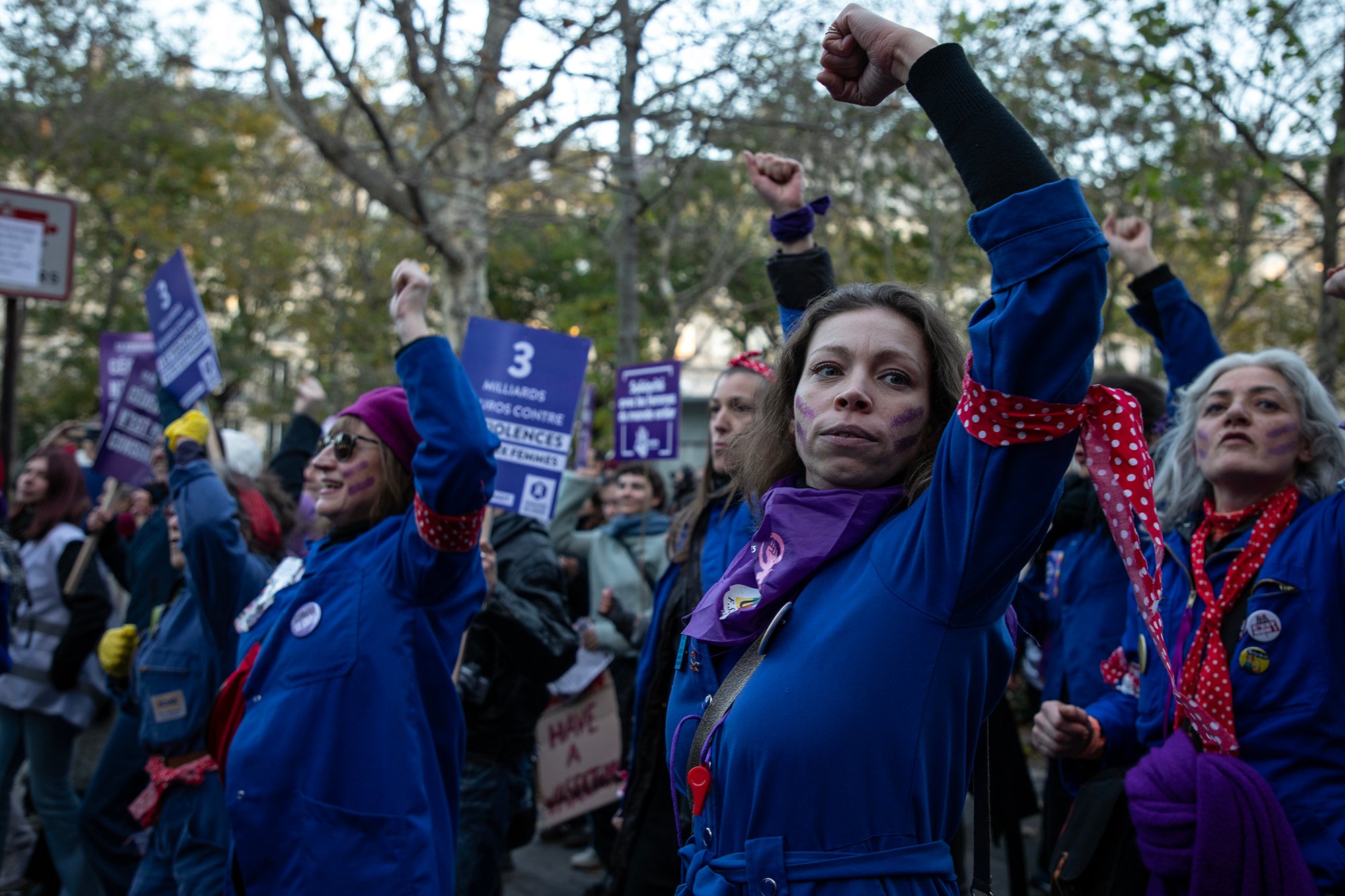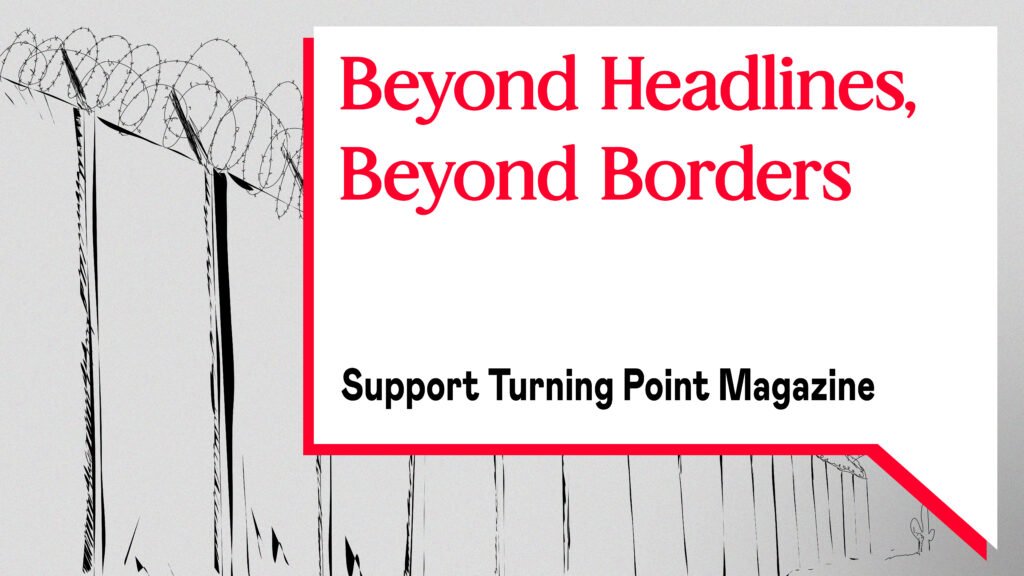In the past year alone, a staggering 13 million women across the European Union have experienced physical violence. This data, collected by the European Union Agency for Fundamental Rights (FRA), considers only reported cases—the tip of the iceberg. Numerous studies reveal that the true extent of violence against women far exceeds official statistics, underscoring the urgency of collective action. Violence against women manifests in myriad forms, extending far beyond visible scars, it permeates the very fabric of our societies. Rooted in gender inequality and entrenched social norms, this pervasive violation of human rights knows no boundaries; affecting 35% of women worldwide over their lifetimes, according to UN statistics.
Women are being killed on a daily basis. More often than not, they are murdered at the hands of those closest to them. Partners, ex-partners, and family members perpetrate these acts of brutality, driven by a toxic cocktail of misogyny and a refusal to acknowledge women’s autonomy. They are killed because they are women. And this stark reality highlights the persistence of gender inequality in our society: the notion persists that men —mainly white men—are superior to women or to other gender identities.
We have to recognize how patriarchy intersects and promotes other systems of oppression. Without patriarchy, there would be no capitalist system.
Meanwhile, the ‘women’s question’ has never been so central to the public discourse. Feminism has been absorbed by liberalism and emptied of its meaning. They made it less radical, less threatening to the status quo, less scary for men. Many wear t-shirts with messages about gender equality, or post inspiring sentences by revolutionaries on social media. However, too many are reluctant to take the matter into their own hands and actually organize. Western liberal feminism often fails to address fundamental issues for all women; remaining trapped in a cycle of racism and Islamophobia; perpetuating patriarchal ideas instead of challenging them. To overcome patriarchy, we need to dismantle structures, norms, and attitudes that uphold male dominance and gender inequality. Most importantly, we have to recognize how patriarchy intersects and promotes other systems of oppression. Without patriarchy, there would be no capitalist system.
And exactly like capitalism, we are led to believe that this form of oppression is inescapable. The rise of patriarchy—according to many scholars, including David Graeber and Abdullah Öcalan—is linked to the first city-states’ formation, 5000 years ago, replacing matriarchal society.
In our first article on Turning Point’s new issue Beyond Patriarchy, we will explore these origins. Our editor, Ronja Mälström, has reviewed Angela Saini’s book The Patriarchs, which “tackles the roots of male domination and shows that there is nothing inevitable about patriarchy.”
Liberal feminisms failures to challenge the current system raise the urgent need to explore alternative approaches to resistance. We cannot overlook the fact that solutions often emerge from communities that have endured colonization, exploitation, and assimilation. Societies that have suffered from decades of war fought by the West in their territories. Far from Europe, women’s movements are shaping alternatives to defeat male domination in places such as South America or Northern Eastern Syria. The Kurdish women’s movement is building a global democratic confederalism for women, and believes the 21st century will be the century of women. Seeing women as the first colony, the first oppressed people; the movement views women’s autonomy as the means to achieve liberation: no society can be free if women are not.
The Kurdish slogan Jin Jiyan Azadi (Woman, Life, Freedom) has inspired the world and, in particular, the revolts in Iran after the death of Jina Amini on September 16, 2022. As the news cycle covering the protests ended after a few months, we at Turning Point want to understand what was happening in the country, how we reached this point, and how the women’s movement came about. The feminist researcher and journalist Saba Memar tells us about the roots of these protests in Iran, addressing the evolution of the feminist movement over the last century.
We will also publish an article about the struggle of mothers From Russia to Kurdistan, mothers often play a central role in resisting occupation and violence. Taking inspiration from March 8, we will publish a second photo essay, asking what it means to be a woman in 2024. If you want to contribute, please be in touch by March 10.
While there are women who are struggling and fighting for a more just society, there are many others who are normalizing fascism. More and more women are frontrunners for far-right movements around Europe—we wanted to know more about how this could be. Researcher Sonja Pietiläinen writes: “Despite the centrality of gender and family-related themes, the leadership of far-right women is based on a combination of narrow forms of femininity in which women portray themselves as caretakers of the nation and as its masculine authorities. In this form of leadership, there is no space for emotions, empathy, sensitivity—or feminism.”
On November 17, 1918, Clara Zetkin wrote a long letter to Rosa Luxemburg. The exchange is fascinating and inspiring; Zetkin’s insistence on the participation of women is clearly demonstrated: “Our struggle today needs women more than ever.” A century has passed since, and little has changed in this regard. We need more women participating in our movements; we need more organized women who can think collectively.
The approaching International Women’s Day, initiated by Clara Zetkin and her comrades, serves as a poignant reminder of the ongoing struggle for gender equality and the imperative for collective action. Beyond mere acknowledgment, active participation in political processes becomes paramount. We must not only take to the streets on designated days but commit to daily struggle and engagement. It is through sustained involvement in politics and the relentless pursuit of freedom that we can dare to dream of a world Beyond Patriarchy: a world where every woman and LGBTQ+ person can live free from violence and oppression.





